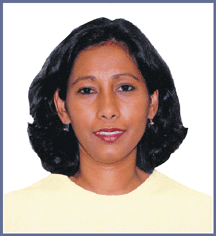Opening Position
March 2010

January 21, 2010, will be considered a significant day in the history of the financial markets, with President Barack Obama’s remarks about banking reform promising to reshape the industry. Since the 1930s there has not been a proposal by a sitting US President for a financial crackdown of this magnitude. While President Obama was making his banking reform announcement, a huge selloff began in the banking sector, which then proceeded to spread out and affect all industries. Setting restrictions on the scale and scope of banks and banning them from activities such as proprietary trading and trading in hedge funds sent banking shares tumbling, but this shouldn’t come as a huge surprise. You have to remember that the markets have had a strong rally during a time of economic weakness, which does tend to make the markets fragile. So it had to be expected that the comments like those made by President Obama would send traders running to hit that sell button.
It’ll be interesting to see how the market pans out after this initial shock. While the concept of financial reform may not be terribly positive for the financial behemoths, if it gets through Congress, it will be something that the general public can rejoice about. We need to keep the banking system safe and secure, and if it means imposing some regulations to make that happen, then so be it. We have seen the damage that a lack of regulation can cause.
In light of these regulatory reforms, I can’t help but think of the controversial trading practice that has been gaining popularity on Wall Street — that is, algorithmic trading. This practice is sometimes referred to as high-frequency trading, and although high-frequency trading firms say that they will be able to provide more liquidity in the markets, tighten the bidľask spreads, and reduce transaction costs, I still think that the retail trader will be at a disadvantage. The high-frequency trader will be able to trade before, and get a better price than, the retail trader. For this, the March 2010 issue of Technical Analysis of Stocks & Commodities, we had the opportunity to interview Karl Denninger of The Market Ticker. He has some interesting views about the financial markets, including high-frequency trading. Denninger believes that when there is a divergence between the performance of the markets and the economy, it is best to stay out of the market. Intrigued? Check it out.
Who knows? Maybe what we are seeing in the markets now is that needed correction so that the markets are more in sync with economic fundamentals. Perhaps 2010 will bring more fairness to the trading arena. But that’s not to say that you shouldn’t be cautious; someone is bound to come up with something that works around the system, so keep your eyes open and your ear to the ground.

Jayanthi Gopalakrishnan, Editor